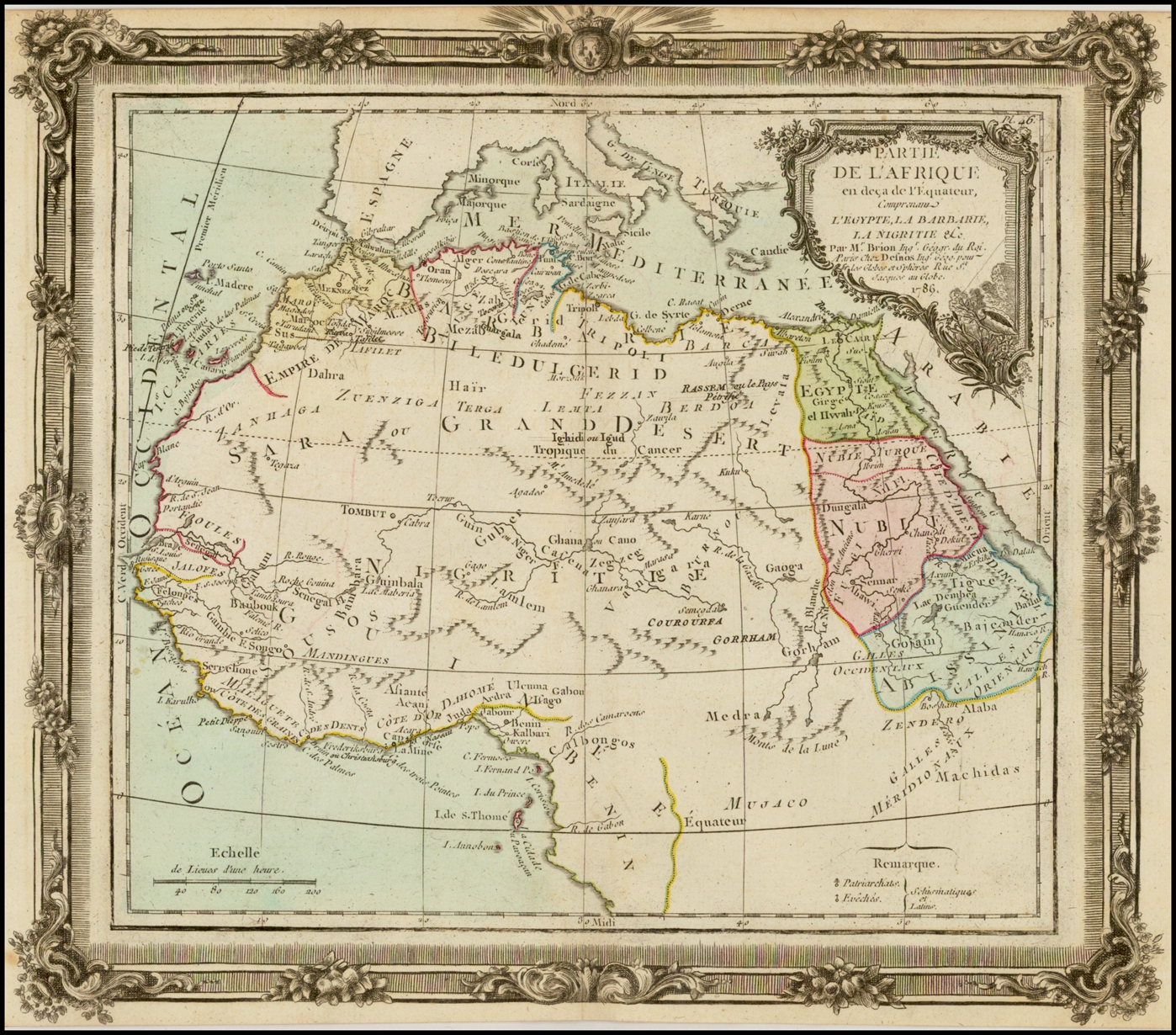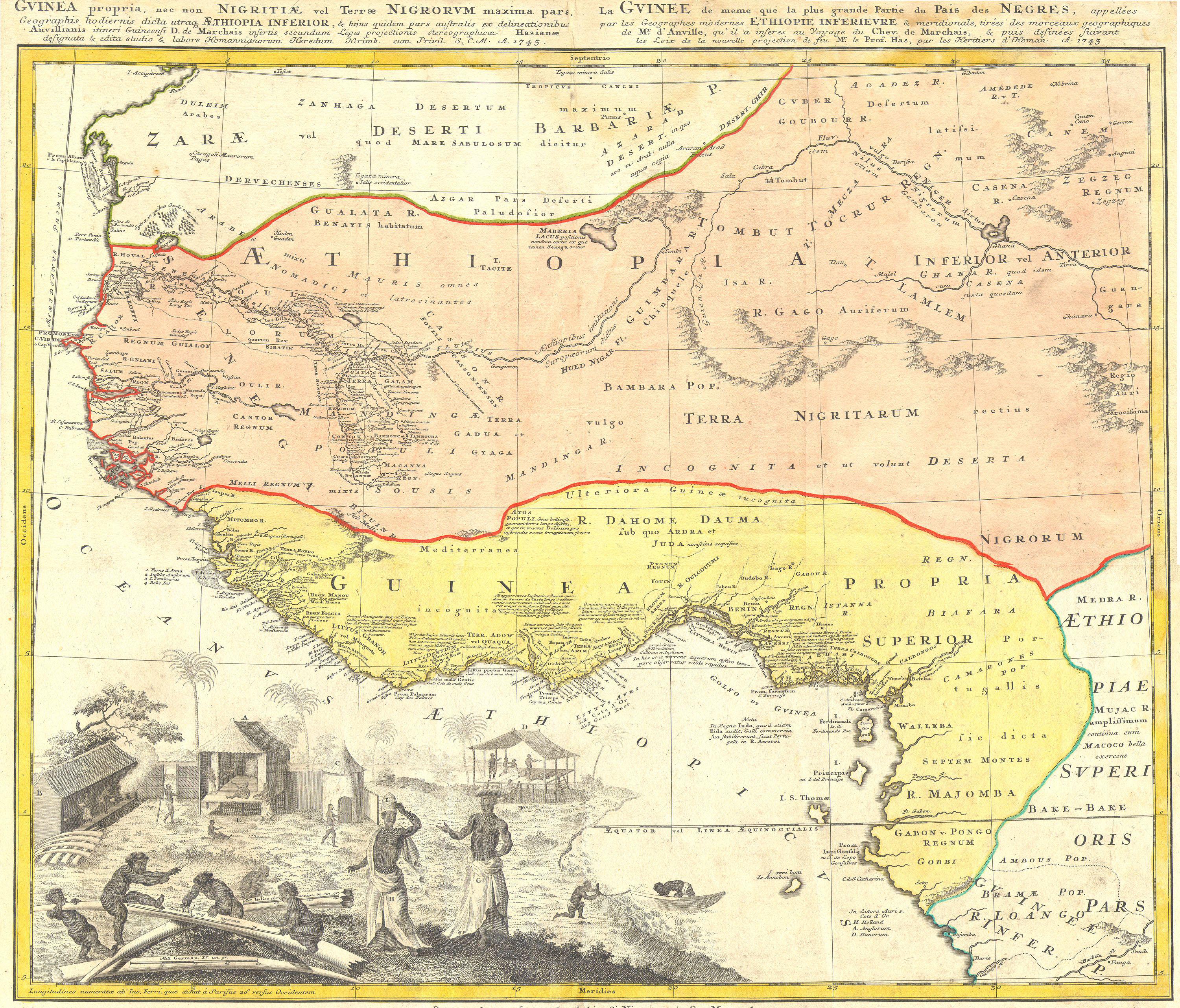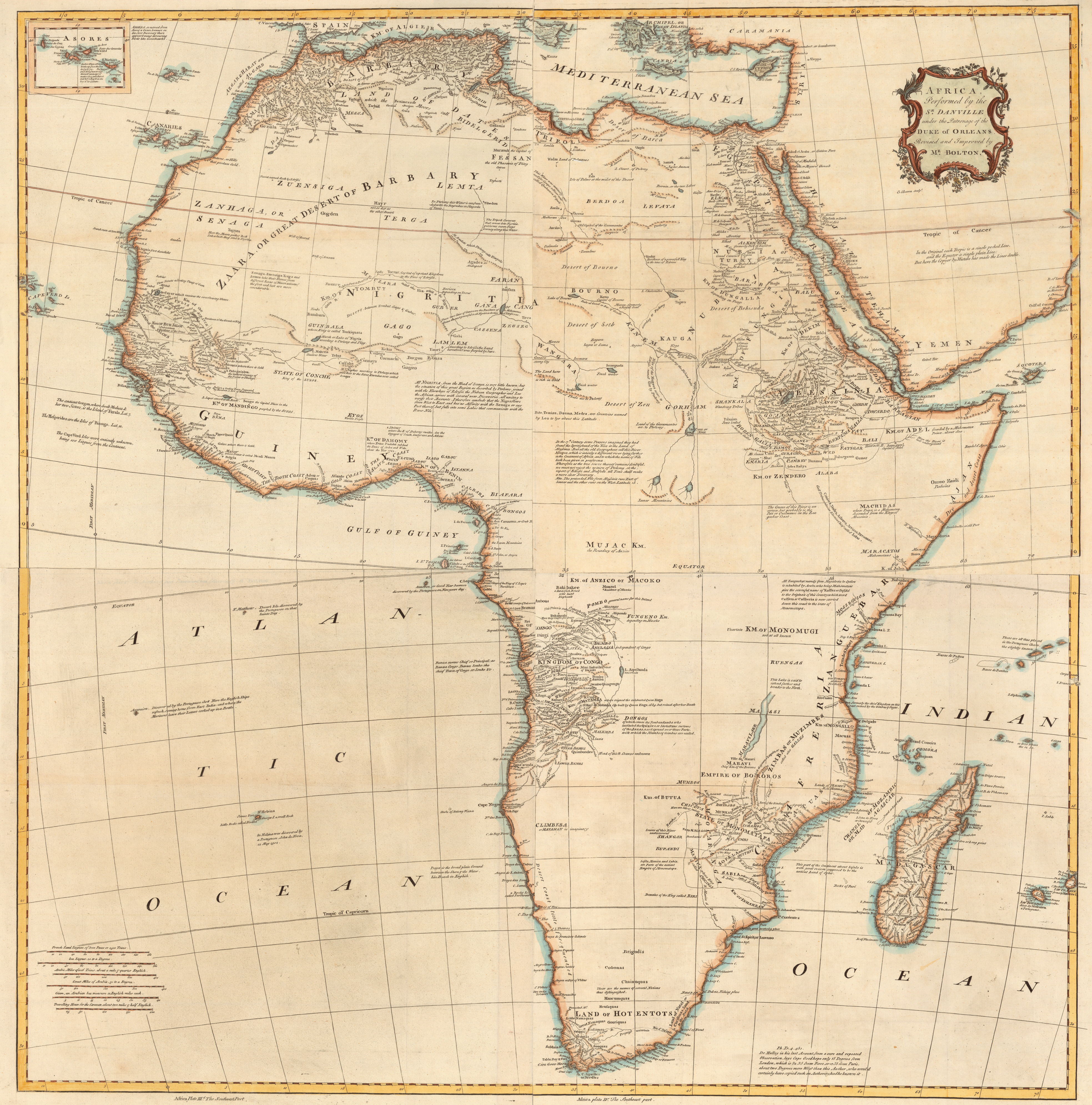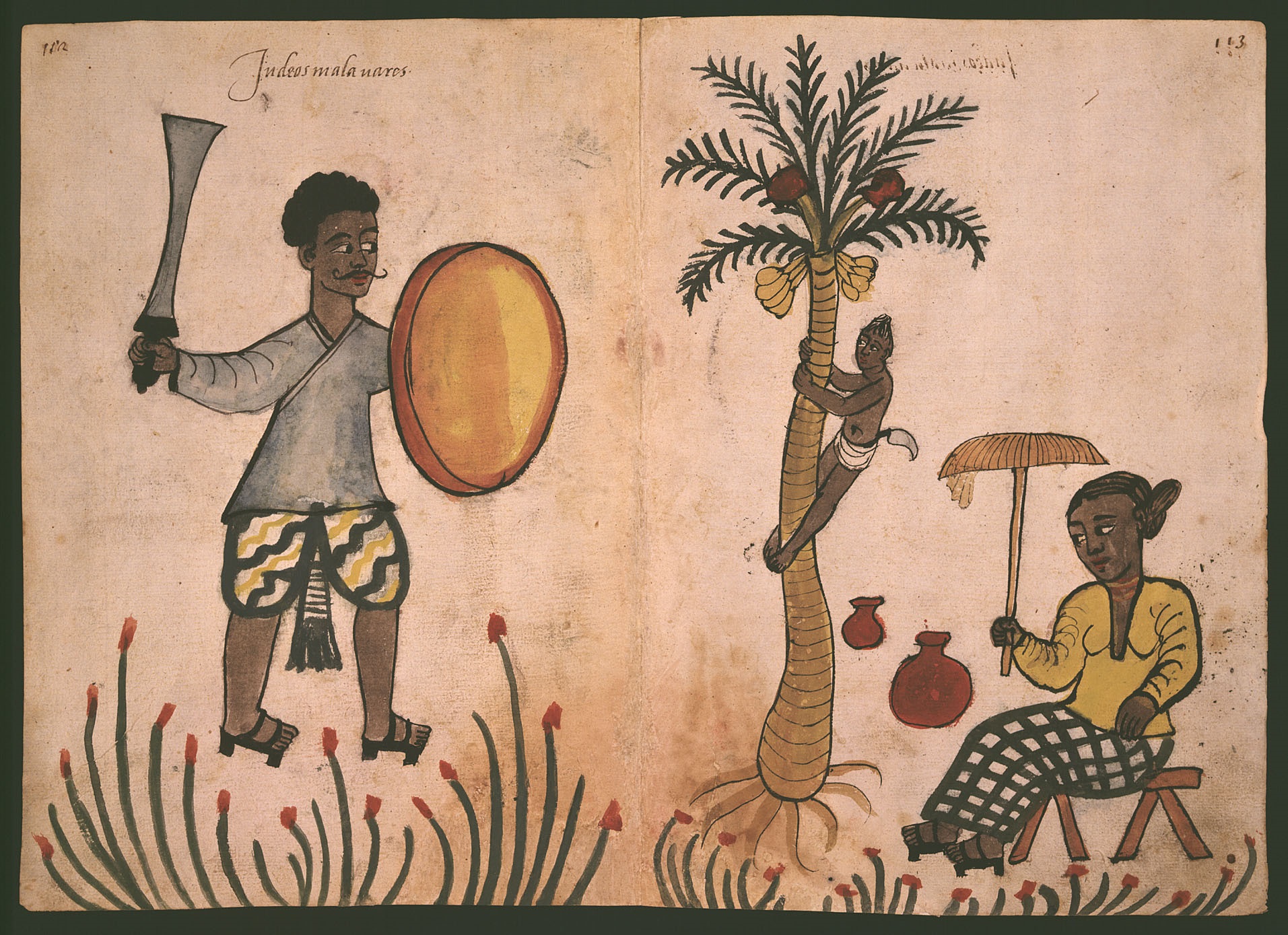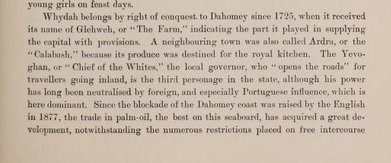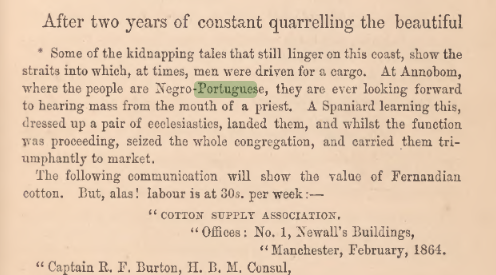
“Iberian rulers altogether, others found that the Portuguese communities that were being formed in the Atlantic were more tolerant of religious difference. Many Jews wen either to north Africa and settled in the fortified Portuguese port towns, or to the islands and the mainland trading posts, from where they could put down roots in the coastal African societies. Most of the Portuguese communities in west Africa had numbers of so-called New Christians (cristaos novos), who practised their ancestral Judaism more or less openly. Others moved to Brazil and played a large part in the development of the sugar industry, enjoying official toleration during the period of the Dutch occupation (1620 – 54) and spreading from there to the non-Portuguese world of the Caribbean and the north Atlantic.” (page 3)

“From Lorenzo Tramalho to Cardinal Francesco Barberini, Lison, 14 February 1632.
J. Cuvelier and L. Jadin eds., L’Ancien Congo d’apres les archives romaines, Memoire de l’Academie des Sciences Coloniales (Brussels, 1954), p. 498.
Trnalsated by Malyn Newitt.
After the expulsion of Jews from Portugal in 1495 and the continued persecution of New Christians, which culminated in the Lisbon massacres of 1506, many Jews and New Christians left for Morocco and also for west Africa (see Docs 4 and 56). In the west African trading stations Jewish rites could be practised with little disturbance from the ecclesiastical authorities. By the early seventeenth century New Christian influence in western Africa was widespread and flourished alongside other kinds of religious heterodoxy. The Sao Tome islanders acquired early on the reputation of being strongly influence by Jewish practices.” (page 66)

“This may have had its origin in the story that large numbers of Jewish children, who had been taken away from their parents, were among the settlers who were sent to Sao Tome in the late fifteenth century,(1) but it was certainly encouraged by the heavy mortality among the priests and governors sent from Portugal, who, it was only too easy to believe, had been poisoned. In 1621, one bishop even fled the island claiming that Judaism was so rampant that he had seen a secret nighttime procession carrying a ‘golden calf’. At a deeper level, these accusations of Judaizing probably reflect the metropolitan frustration at the long-established opposition of the islanders to any form of control from Lisbon.
This week a canon and two secular priests from Sao Tome have arrived from Holland, having been taken by the Dutch, after the capture of their ship. The bishop (of Sao Tome), a Dominican, died two years ago(2). He was poisoned by some New Christians, among them ecclesiastics as well as laymen, against whom he had held an inquest and had produced the deposition of witnesses. The canon says that the island is so infested with New Christians that Jewish practices are carried on almost openly. They have poisoned the bishops and governors who try to punish them. It is requested that New Christians should no longer receive benefices and canonries and that the capitular vicar, who they say is of that race and one of those principally guilty of the poisoning, should be removed from his office. This should be done if he is found guilty.
Notes
- This story appears in fol 197r of the manuscript assembled by Valentim Fernandes, who gives the number of children as 2,000. See Th. Monod, A. Teixeira da Mota and R. Mauny, eds. and trans., Description de la Cote Occidentale d’Afrique (Senefal au Cap de Monte, Archipels) (Bissau: Centro de Estudos da Guine Portuguesa, 1951), p. 119. See Doc. 18.
- Fr. Domingos da Assuncao was enthroned as bishop in 1627.”
Page 76-77

“In this country and in Mandinga there are Jews who are called Gaul and they are black like the people of the country. However, they do not have synagogues and do not practice the ceremonies of other Jews. They…” (page 76)

“… do not live with the other blacks but separate from them in their own villages.
These Gauls are usually jesters and singers and play on viols and cavacos. And because they do not dare to enter the villages, they take up a position behind the houses of the lords of the village, and at daybreak they sing his praises until he orders them to be given a ration of millet, and then they go away. And when the lord leaves his house, these Jews go in front of him singing and calling out their jests. If the Jews did not know these jests and if they did not greet the lord in this way, they would not be tolerated by the blacks. For so great is the ill will felt towards them, that they are barred by blacks and do not dare enter one of their houses ecept that of the lord. And if they are found in the village, they are beaten with sticks.
No Gaul, whether Jew or a Jewess, may take water from a spring until everyone else has finished drawing water. And then the last person will give them water. Or if they live in a country where there is a lot of water, they have some spring of their own set apart.” (page 76)




